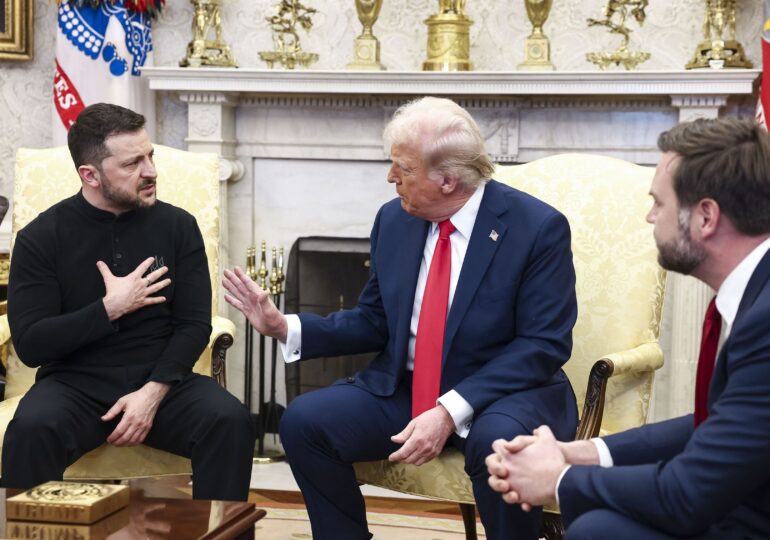The presidential elections in Ukraine are becoming increasingly likely, amid internal and international pressures.
For months, President Volodymyr Zelensky has been under pressure from both Vladimir Putin, who questions his legitimacy, and Donald Trump, who echoes the Kremlin leader’s views. The two are pushing him to hold elections in the midst of war, hoping that the vote will remove him from power.
In this regard, the United States is trying to impose a ceasefire that could allow the lifting of martial law (which prohibits an election during a war) and the conduct of the vote.
Analysts at The Economist examine the current situation and explain how, in July, Ukrainians could be called to vote to choose their president.
Zelensky Changes His Mind After the Humiliation in the Oval Office
Two months ago, Zelensky seemed determined not to hold the election, but the public humiliation he endured from Trump has boosted his popularity. Zelensky has changed his strategy, and serious preparations are now being made for the Ukrainian leader to face the electorate once again.
- Trump Threatens Russia with Sanctions Again: "I'm Fed Up with Putin"
- Anger Towards Putin Has Subsided, Now Trump Threatens Zelensky: "He Will Have Big Problems. Big, Big Problems!"
Government sources, cited by The Economist, state that Zelensky called a meeting last week to instruct his team to prepare for the elections immediately after a total ceasefire that the Americans believe they can impose by the end of April.
The first confirmation of such an agreement could come around May 5, the deadline for a parliamentary vote on extending martial law, which expires on May 8.
The lifting of martial law is a necessary condition for triggering the electoral process.
Possible Election Date: July 2025
The law requires a 60-day campaign, making the earliest possible election date in early July.
However, some sources argue that the process should last three months for the reconstruction of electoral lists. Petro Poroshenko estimates that the elections will take place between August and October, and the sanctions imposed on him by Zelensky in February were aimed at eliminating him from the race and discouraging General Valeriy Zaluzhnyi.
Petro Poroshenko, the leader of the largest opposition party and a vocal opponent of Zelensky, believes that the elections could take place "anytime between August and October."
He argues that, in fact, the campaign has already begun, with Zelensky's controversial decision to sanction him in February (freezing assets in Ukraine and preventing financial transactions).
This measure was officially linked to his long-standing trial for alleged treason, but some believe that the real reason was Poroshenko's visit to the US in early February, where he met with Trump associates, analysts explain.
The same official believes that Zelensky will try to surprise his opponents by organizing the elections in July, counting on a short deadline that would allow him to run without serious opposition. Such a move would be favorable to him, the source argues: "A long electoral campaign would tear the country apart."
Putin and Trump Rethink Their Strategy
Serhii Vlasenko, a parliamentarian from the Batkivshchyna party, states that achieving a ceasefire by May 8 is complicated, and organizing the vote for millions of voters abroad, in trenches, or in occupied regions is "even more difficult."
One solution could be the use of the well-known government smartphone application, Diia.
However, this would raise transparency questions. Any change would require an amendment to the Constitution, which entails a two-thirds majority in parliament.
This would be difficult, considering that opposition parties oppose holding elections during the war.
Putin and Trump, who strongly influence Ukraine, may no longer desire swift elections. Initially, they supported them, believing Zelensky would lose, but now, with reversed odds, they may try to block his path to a new mandate.
Putin has many advantages: his drone attacks could hinder the lifting of martial law and the organization of the election.
However, the elections could offer him another opportunity – destabilizing Ukraine.
An intelligence officer warns that "in 2025, internal instability will be a greater threat than battles on the front lines."
Russia could use the electoral campaign to influence public opinion.
On the other hand, Trump's hasty diplomacy could impose an unfavorable peace agreement, fueling discontent.
D.D.

